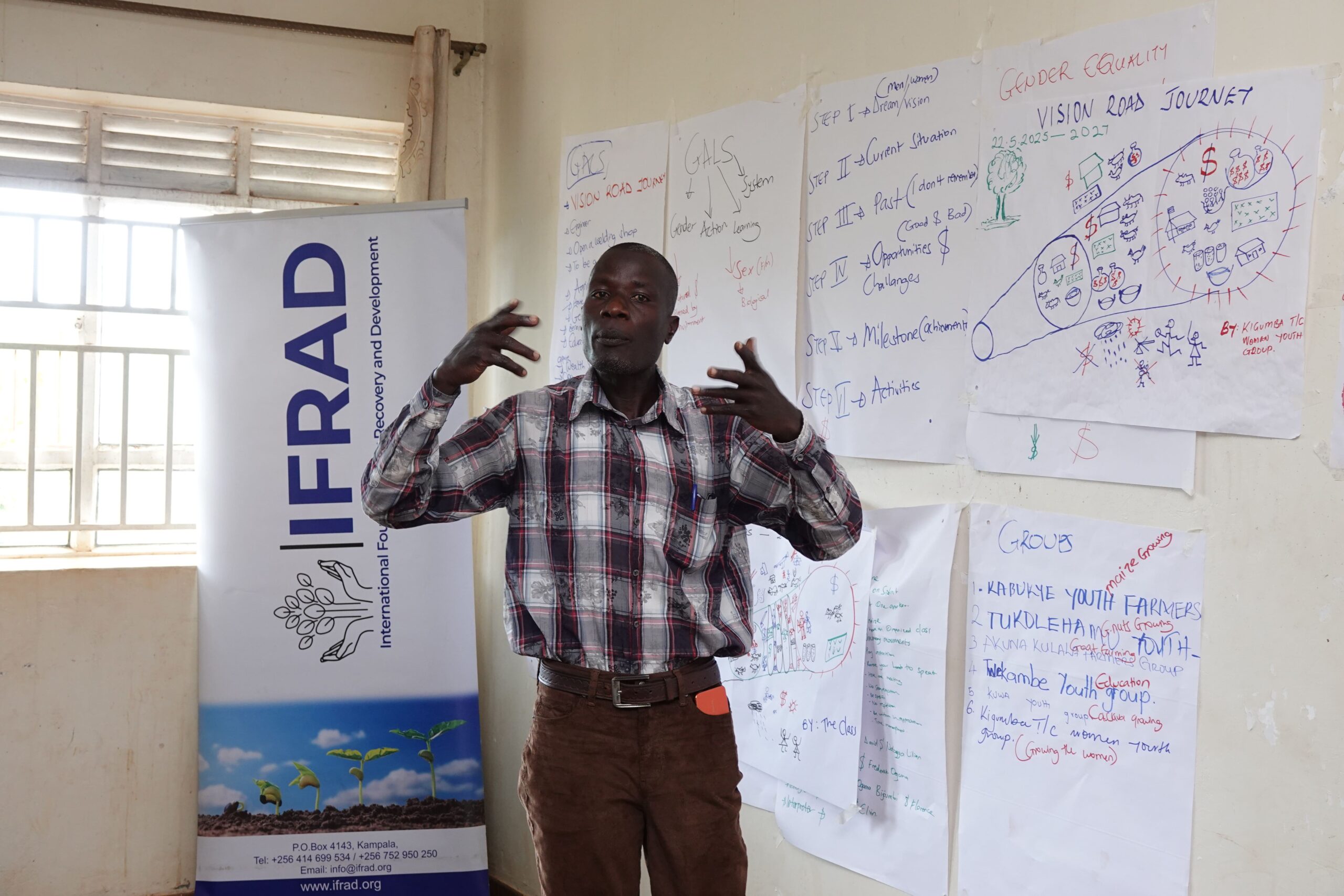When you walk through the vibrant villages of Kiryandongo District, it’s hard to miss the quiet determination that fills the air, a mix of hope, ambition, and a collective will to rebuild. It is here that the International Foundation for Recovery and Development (IFRAD) is writing a new story of inclusion, resilience, and opportunity through the LIFT Project (Locally-led Inclusive Economic Development for Youth and Entrepreneurs in Refugee and Host Communities).
Implemented as part of the broader LEAD Uganda Programme and funded by the Dutch Ministry of Foreign Affairs through Woord en Daad, the LIFT project is not just another development initiative. It is a movement empowering young women, youth, and persons with disabilities to rise above the challenges of displacement, poverty, and unemployment.
A Locally-Led Journey of Empowerment
The LIFT project is deeply rooted in the belief that local communities are not beneficiaries, they are co-creators of change. Since its launch in January 2025, IFRAD has worked side-by-side with refugee and host community members in Kiryandongo to co-design and implement practical, sustainable economic solutions.
The project aims to improve the socio-economic well-being, agency, and resilience of vulnerable youth and young women by equipping them with agricultural and business development skills. Through a gender-transformative and market systems approach, LIFT connects communities to opportunities that allow them to thrive, not just survive.
Transforming Vision into Action through GALS
One of the most inspiring aspects of the project so far has been the introduction of the Gender Action Learning System (GALS), a participatory methodology that helps individuals and families envision the futures they want and map the steps to get there.
Over 300 participants, both refugees and host community members have now developed their Vision Road Journeys, powerful hand-drawn life plans that reflect dreams of building homes, starting businesses, educating children, and achieving gender equality at home.
One participant, Onencan from Kabukye Youth Group, shared how GALS helped him plan and take action to complete his long-delayed house project. Others, like Akuna Ku Lala Farmers Group, are using the same tools to mobilize resources and construct a community church.
These are not just stories of change, they are stories of ownership. GALS is nurturing a new generation of leaders who can think critically, plan collectively, and act courageously for their futures.
Building Resilient Livelihoods
Beyond mindset change, LIFT is helping youth transform ideas into income. Working with Village Savings and Loan Associations (VSLAs), IFRAD has supported community groups to start saving and investing in small enterprises.
In the host community, all youth groups have begun regular weekly savings, while refugee groups are being supported to start once their book-keeping training is complete. The sight of young people counting their first savings, discussing plans for demo farms, and pooling resources to rent land for group farming speaks volumes about the power of collective action.
Most groups have now selected market-oriented enterprises such as beans, maize, groundnuts, and poultry, aligning their efforts with both local knowledge and regional demand.
Partnership and Collaboration at Work
None of this would be possible without strong partnerships. Through the LEAD Programme, IFRAD works collaboratively with Woord en Daad, local governments, the Office of the Prime Minister, and community structures such as Refugee Welfare Councils (RWCs). These partnerships ensure that the project is context-responsive, inclusive, and aligned with Uganda’s broader development goals for refugee and host communities.
The project also benefits from technical backstopping and knowledge exchange with other consortium partners, enabling innovation and collective learning.
Navigating Emerging Realities
As global funding landscapes shift and climate change intensifies displacement, initiatives like LIFT are becoming even more critical. IFRAD recognizes that the development challenges of today cannot be solved by aid alone, they require innovation, partnership, and local ownership.
By embedding resilience thinking, promoting green livelihoods, and building financial literacy, the LIFT project is positioning communities to withstand future shocks be it economic, environmental, or social.
A Call to Continue Lifting Together
As we reflect on the first ten months of implementation, the progress made under the LIFT project affirms one powerful truth: when youth and women are given the tools, trust, and opportunity, they lead transformation themselves.
IFRAD remains committed to walking alongside them amplifying their voices, strengthening local enterprises, and building inclusive economies where every person can flourish.
To our partners; the LEAD Uganda consortium, Woord en Daad, the Dutch Ministry of Foreign Affairs, local authorities, and community champions this journey of empowerment is ours together. The impact we are seeing today is only the beginning. Together, we are not just lifting livelihoods we are changing lives.
#Localization #YouthVoices #RefugeeResilience #LEADUganda #WoordEnDaad #IFRADUganda



No responses yet